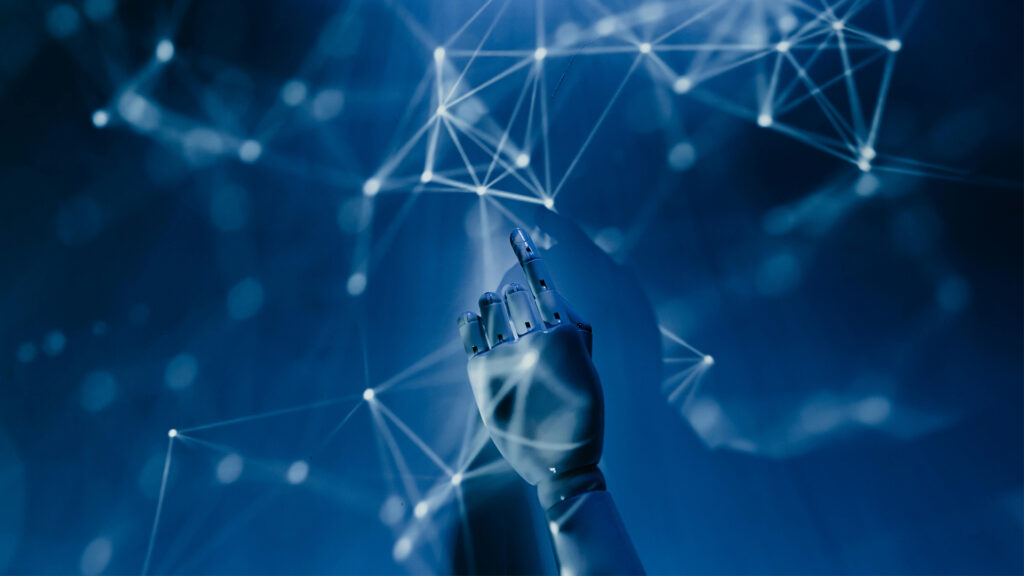Artificial Intelligence is permeating people’s lives in every way. Just as the invention of the Internet once radically transformed people’s lives, today, with more technological development, the same is happening with AI. It is increasingly used and consumed by people. Likewise, a sustainable AI has its benefits when it comes to environmental sustainability.
Thanks to the technological progress of AI, it is possible to alert, design, execute, consult, and plan certain situations that cause pollution and harm the environment. Given this advantage, we must use AI properly to create a more stable world, ensuring that we meet current needs without compromising those of future generations.
The United Nations estimates that by 2050, the global population will reach up to 9.7 billion, which is 2 billion more than the current figure. This makes it crucial for AI to devise different methods and solutions for a more sustainable and eco-friendly world.
Sofía Vago, CEO of Accenture Argentina, stated, “As AI, spatial computing, and body sensing technologies evolve to a point where they seem to mimic human capabilities and become nearly invisible, what will remain are people, empowered with new abilities to achieve things they previously thought were impossible.”
Therefore, it’s a tool that is gaining momentum both in its technological advancements and in the increased use by humans. For example, one of the significant factors is climate change, which is currently in crisis.

How can it help?
AI can predict various situations such as natural disasters, extreme temperature fluctuations, and different climatic anomalies, which can then help scientists gain a better understanding of the causes of climate change. This allows them to develop, along with AI, effective mitigation plans.
Regarding biodiversity, Artificial Intelligence can identify and protect various endangered species, given that animal life provides essential natural services to humanity, such as medicinal resources, food, and natural heritage.
Additionally, through wildlife monitoring, AI can obtain images and video and/or sound recordings of animals, enabling more effective and comprehensive tracking of biodiversity in different ecosystems around the planet.
Similarly, in the energy sector, numerous companies and industries can benefit from Artificial Intelligence while also benefiting the environment. For example, in agriculture, AI improves irrigation and fertilization efficiency.
AI can predict crop needs using moisture, temperature, and fertilization sensors. Drones that facilitate farmers’ monitoring and hyperspectral image analysis for comprehensive pest control are among the most innovative solutions for agricultural sustainability.
Waste recycling is another area that can become more sustainable with the help of artificial intelligence. According to the International Solid Waste Association (ISWA), the global average recycling rate is only 14 percent.
Considered an excellent alternative, AI improves this situation by classifying materials, scaling operations, and conducting prescriptive analysis to map these movements.This way, it can plan and promote different recycling methodologies.
It’s essential to take advantage of the opportunities that this technology has provided and will provide to address environmental issues and the role of innovation in this progress. A better future in business and society depends on solutions through modern, efficient, and intelligent systems.
Not everything that glitters is gold
However, despite many of the advantages that AI offers, it also has its downsides. As this technology is used more frequently, it leads to significant increases in energy consumption. It’s estimated that each AI-generated image consumes the same amount of energy as a full charge of a cell phone battery.
A study by researchers from Carnegie Mellon University and Hugging Face reported, “Globally, the electricity consumption of data centers has grown by 20 to 40 percent annually in recent years, reaching up to 1.3 percent of global electricity demand.”
Artificial intelligence is a powerful tool that has the ability to alter almost every aspect of our lives. However, how we create and use it largely determines its impact.To ensure that AI benefits society as a whole, it is essential to address issues such as ethics, privacy, fairness, and awareness.





